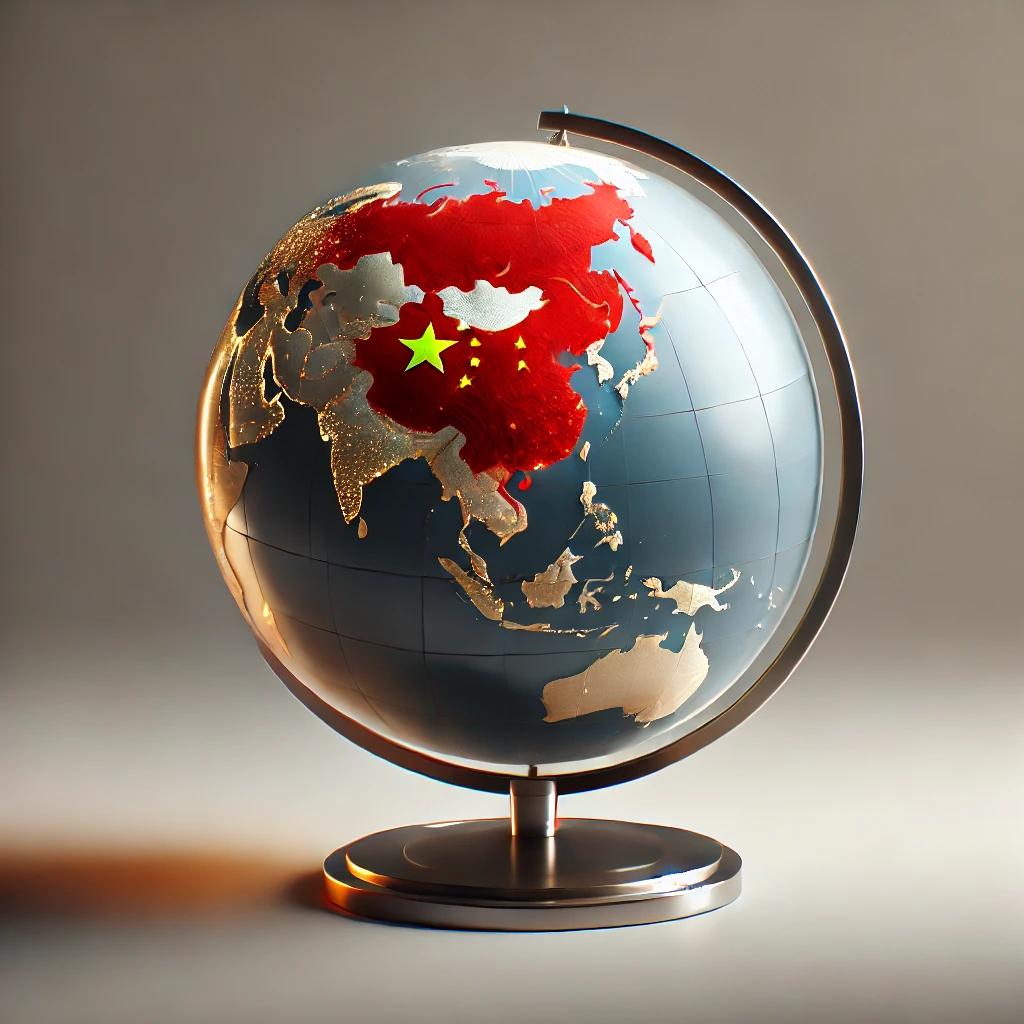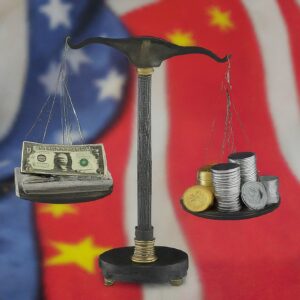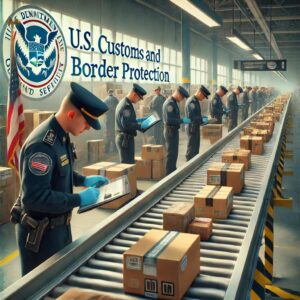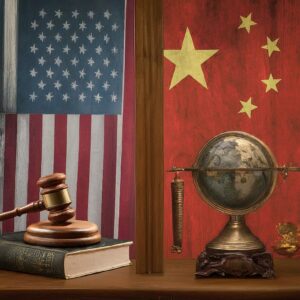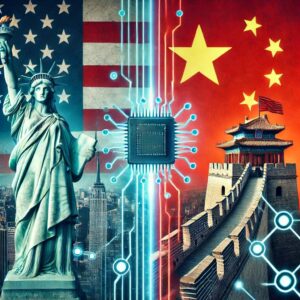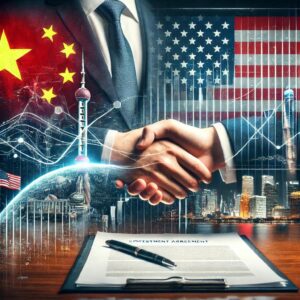What is China’s Game Plan for International Business Relations?
As lawyers, we spend a lot of time fielding good, bad, weird, interesting, deep, superficial, and all types of other questions from people. We’re generally expected to be oracle-level wizards, a lot like people are treating AI now. In this series, we’ll share some of these questions that people ask us, along with our answers. Today, I am using my own question after attending some interesting business meetings with China’s consular delegation from Los Angeles in recent weeks.
What is China’s Game Plan for International Business Relations?
Quick Question. I became starkly aware of China’s subnational relations campaign on the eve of the Trump Administration rolling out additional tariffs in May 2019. On May 11, approximately 85 Chinese officials and businesses came to Salt Lake City to let us know that China was open for business and that we should develop deeper subnational relationships. I had never seen such a display. Then two weeks ago, Chinese consulate staff from Los Angeles held a meeting with Utah business leaders to give us a similar message. And again just three days later, the Chinese Consul General held another similar meeting with Utah business leaders. These back-to-back meetings felt unprecedented and let me to ask, “What is China’s game plan for international business relations? Are we in a new era or is it just business as usual?”
Quick Answer. China is a country of relationships (关系). In business, political, and every other circle in China, relationships are key. Long before Xi Jinping mentioned the phrase “新质生产力“, translated as “new quality productive forces”, another catch phrase made its circles in Chinese and international China circles: “地方关系” (local/subnational relations). Particularly in the US, states and subnational business groups have significant autonomy and influence. China continues to develop these relationships with the goal to exert influence at every level and in every geographic area in the US.
Introduction
The evolving US-China business climate continues to present both challenges and opportunities for companies navigating the intricate trade landscape. From concerns over intellectual property (IP) protections to debates about customs regulations like the US import de minimis loophole, the complexities of doing business in and with China are ever-present. Two recent delegations from the Chinese consulate in Los Angeles sought to address these issues, highlighting China’s ongoing reforms, IP advancements, and subtly highlighting China’s international relations strategy. These discussions offer key insights into the future of US-China trade, particularly for businesses looking to engage with or expand into this critical market.
-
US-China Business Climate and Trade Issues
- The Chinese consulate delegation was interested in the US-China business climate and sought frank opinions about the issues US businesses face in China.
- One business leader raised concerns about the de minimis import loophole, which has become a flashpoint for US policymakers, in US customs regulations, allowing packages under $800 to bypass certain tariffs. Some ecommerce businesses exploit this for larger gains. The de minimis rule allows packages valued under $800 to bypass import duties, which many ecommerce businesses, particularly from China, have been exploiting. This loophole was originally intended for travelers but has since been utilized by companies like Temu and Shein to ship products into the US without being subject to tariffs.
- There was a discussion about China’s increased IP protection, highlighting China’s three IP courts (Beijing, Shanghai, Guangzhou) and the protection of registrations and applications since 2014.
- Due diligence issues were raised, noting the difficulty in accessing official records due to geofencing of Chinese systems, which require a VPN to access from abroad.
- Headlines about due diligence companies facing trouble in China, and PwC’s involvement in China’s Evergrande scandal were mentioned. PwC has faced scrutiny due to its role as Evergrande’s auditor amidst the massive financial collapse of the property giant. The broader issue of due diligence companies getting into trouble in China, especially in light of recent geopolitical tensions, has been a growing concern, leading to reputational and operational risks for firms operating in the region.
- Discussion about subsidies to Chinese companies applying for US trademark applications, which the consulate delegate denied knowledge of.
-
China’s Position on Development and International Relations
- The Chinese delegation repeatedly emphasized that China is still a developing country, which some of the US participants took issue with. The delegation cited China’s 2001 entry into the World Trade Organization (WTO) as the key point in China’s modernization efforts.
- The Chinese Communist Party’s top goal is to “take care of its people” and meet their desire for a better life. The delegation assured us that China has “no intention of challenging other countries” and wants to work together on global issues.
- Foundational principles of international trade under the WTO were discussed, including level playing fields, enforceability of rules, domestic political support, environmental and labor considerations, supply chain resiliency, and national security concerns. One participant noted that the US and China do not have agreement in any of these six areas right now, which is different from bilateral trade discussions nearly 20 years ago.
-
Reforms and Opening Up
- The Chinese delegation spoke about taking concrete actions China is taking towards reform and development, asking for time to adjust.
- The 10-year visa program established by Consul General Guo, which benefits US business people, was mentioned as an example of pragmatic relationship development.
- China aims to move up the value chain with a focus on greener and cleaner technologies as part of its high-quality productive force development.
- Discussion on foreign capital investment, with China allowing foreign companies to invest in hospitals in eight major cities plus Hainan province and invest more in manufacturing production in China.
-
IP Protection and Data Laws
- The Chinese government is focusing on improving IP protection, and the consul general expressed interest in learning more about specific IP theft cases faced by Utah companies.
- China is also updating its data protection laws, indicating further reforms in its regulatory framework.
-
Subnational Relations and Tourism
- There was a focus on strengthening subnational relations, particularly between Utah and China. The Consul General proposed an annual trade forum between Utah and China.
- The consulate asked for assistance in facilitating faster visa processing for China’s tourism sector.
- The delegation mentioned China’s goal of having 50,000 US students studying in China as a way to foster better US-China relations. The Chinese government aims to foster better relations with the US by increasing educational exchanges.
-
Consul General’s Goals
- Consul General Guo’s primary goal is to foster pragmatic relationships and continue reforms and opening up policies. He wants to leave the national political gridlock to Beijing and Washington.
- He outlined China’s focus on high-quality productive forces, adopting cleaner technologies, and aging society issues.
- China plans to establish a major shipping corridor between Los Angeles and Chinese ports by 2030. He calls it the “Great Shipping Corridor.” This initiative aims to enhance trade flow and economic cooperation between China and the US West Coast, further integrating supply chains.
Conclusion
In conclusion, China’s approach to international business relations reflects a nuanced blend of diplomacy, subnational engagements, and long-term strategic goals. By fostering stronger relationships with regional business leaders in key markets, China is signaling its intent to collaborate and integrate more deeply into global supply chains despite ongoing geopolitical tensions. For businesses and subnational governments, understanding and adapting to China’s evolving strategies will be crucial for navigating this dynamic landscape and leveraging opportunities in the future. The recent subnational outreach efforts in Utah suggest that companies should be prepared for more localized and direct interactions with Chinese counterparts.
For more reading, see:
Should You Work for a Chinese Company?
How to Protect Your Trade Secrets Internationally
Understanding US Antidumping Cases Involving Imported Chinese Products










